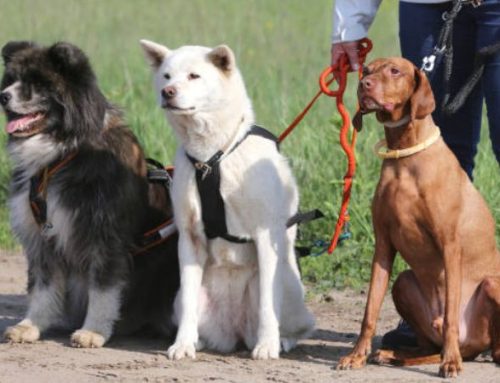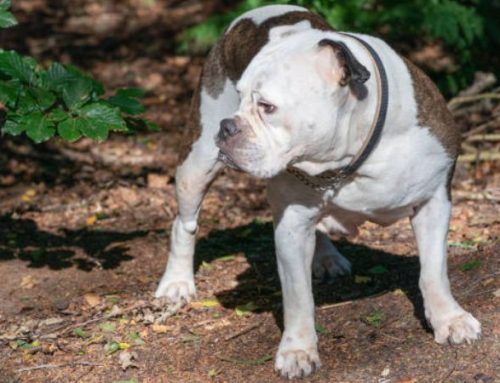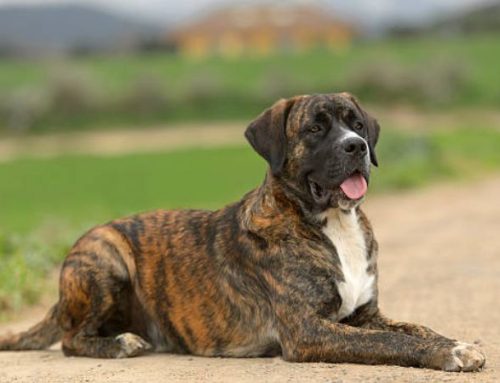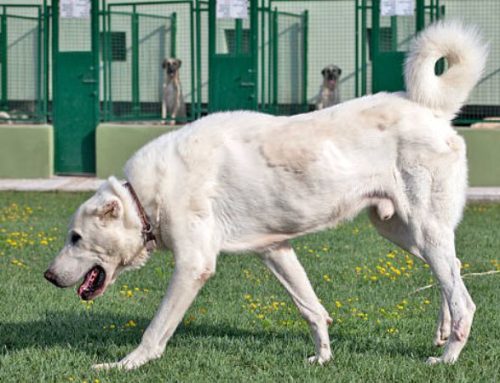With its shimmering blue coat dusted in silver and a body built for grace rather than fluff, the Korat is a feline that turns heads without even trying. Compact, muscular, and sleek, this ancient Thai breed carries an air of quiet confidence and mystery.
In this Nexus Pets guide, we’ll dive into everything you need to know—pricing, lifespan, temperament, and how male and female Korats differ so you’ll have a complete picture before bringing one into your home.
The Good Luck Cat from Thailand
Once gifted to newlyweds as a symbol of fortune and prosperity, the Korat—known in Thailand as the Si-Sawat—is one of the world’s oldest and most cherished natural cat breeds.
Rare, ancient, and steeped in tradition, this “good luck” cat has changed little in appearance since its first mention in Thai literature centuries ago. With its heart-shaped face, shimmering blue-silver coat, and penetrating green eyes, the Korat is both a cultural treasure and a captivating companion.
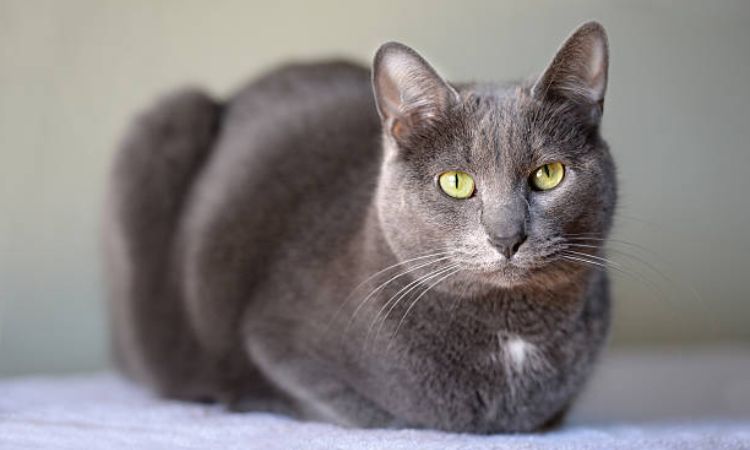
Quick Facts: Korat Cat at a Glance
| Origin | Thailand (Phimai, Nakhon Ratchasima Province) |
| Lifespan | 12–15+ years |
| Average Weight | 6–10 lbs (2.7–4.5 kg) |
| Coat & Color | Short, single coat; Silver-tipped blue (only color) |
| Temperament | Affectionate, intelligent, active, vocal, deeply bonded to owners |
| Average Price | $400–$2,000+ per kitten |
Korat Cat Personality and Temperament
The “Velvet Paw” Ruler
Korat cats are affectionate, intelligent, and highly observant, often earning the nickname “Velvet Paw” due to their soft yet commanding presence. While generally gentle and sweet-natured, they can also be strong-willed or “bossy,” especially when seeking attention or asserting themselves in the household. Their curiosity and keen sense of awareness make them highly perceptive of their surroundings and the emotions of their owners, which allows them to be both loyal companions and playful manipulators of household routines.
High Affection and Loyalty
One of the most defining traits of the Korat is its deep devotion to its human family. Many Korats form an especially close bond with a single person, often following that individual from room to room, climbing onto their lap, and seeking constant interaction. This loyalty is heartfelt and enduring, making them excellent companions for those who are home frequently or enjoy including their cat in daily activities. Korats express love through gentle head bumps, slow blinks, and soft nuzzles, creating a strong emotional connection with their chosen “favorite.”
Activity and Intelligence
Korat cats are highly active, playful, and exceptionally intelligent. They thrive on interactive toys, puzzle feeders, and games that challenge their minds. Their curiosity often leads them to explore every corner of their home, from high shelves to cupboards, in search of mental stimulation. This breed can also be taught tricks and enjoys learning through positive reinforcement, making training both fun and rewarding. Without adequate playtime and mental exercise, Korats may become bored, which can lead to mischievous behavior or attention-seeking antics.
Vocalization
While Korats are not as talkative as Siamese cats, they are far from silent. They use a range of soft chirps, trills, and meows to communicate with their owners. Their vocalizations are often paired with expressive body language—tail flicks, ear positions, and eye contact—to convey needs or emotions. This subtle, thoughtful communication makes them endearing without overwhelming quieter households.
Compatibility with Family and Pets
Children
Korats generally do well with children, especially when raised together or when kids are taught to handle them gently. They enjoy interactive play and can be patient with children, but supervision is recommended to ensure positive interactions. Teaching children to respect boundaries helps prevent accidental stress or defensive behavior from the cat.
Other Pets
Korats can be assertive and may sometimes prefer the company of other Korats due to shared energy levels and social behaviors. However, with careful introductions and mutual respect, they can coexist with other cats and even dogs. They tend to be most comfortable with pets that acknowledge their need for attention and personal space. Household harmony is easier when the Korat’s social and affectionate needs are met while respecting other pets’ boundaries.
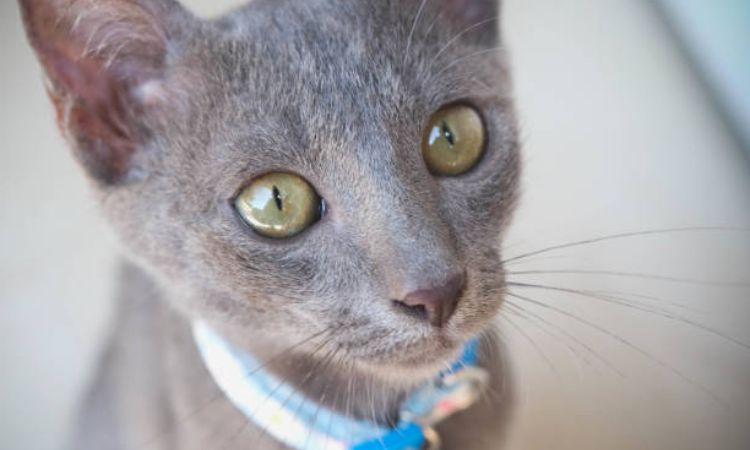
Korat Personality: Male vs. Female
Korat cats are known for their intelligence, playfulness, and affectionate nature, but subtle differences exist between males and females. Understanding these distinctions can help potential owners choose a Korat that best fits their household and lifestyle.
Size & Build
- Male Korats: Typically larger and more robust, males weigh between 7 and 12 pounds. Their muscular build gives them a solid presence, and they often feel heavier than their size suggests.
- Female Korats: Smaller and more delicate, females generally weigh 5 to 8 pounds. They have a daintier frame and appear more slender, yet they are still compact and sturdy with strong muscles relative to their size.
Temperament & Independence
- Male Korats: Males tend to be more relaxed and easygoing. They enjoy lounging with their humans, observing their surroundings, and are generally content to “hang out” without constant stimulation.
- Female Korats: Females often display a slightly more assertive, strong-willed personality. They may demand attention more actively, be a bit more vocal or persistent in play, and sometimes require greater patience during training. Despite this, they are equally affectionate and loyal to their human companions.
Korat Cat Lifespan and Health
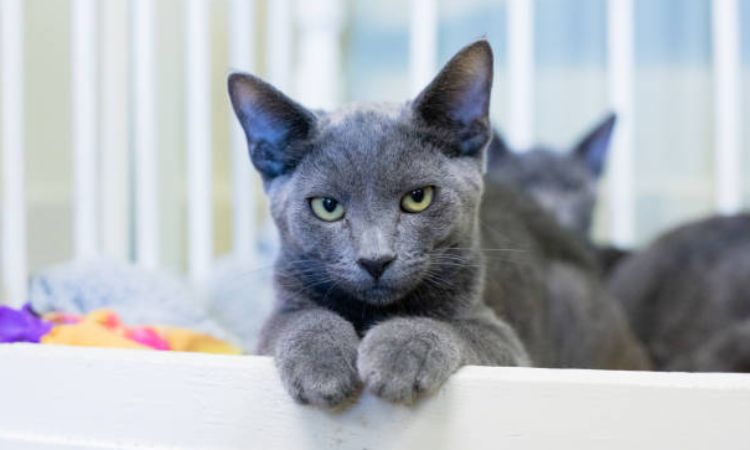
Lifespan
Korat cats are generally a healthy and robust breed, with an average lifespan of 12–15 years when provided with proper care. Some Korats can live beyond 15 years, especially with attentive diet, exercise, and veterinary monitoring. Their relatively long lifespan makes them a lifelong companion, but prospective owners should be prepared for a commitment of over a decade.
Common Health Considerations
Despite their overall good health, Korats are a pedigree breed with a relatively small gene pool, which can make them susceptible to certain inherited conditions. Early detection, regular veterinary care, and responsible breeding help mitigate these risks.
GM1 Gangliosidosis
- What it is: A rare, inherited neurological disorder caused by a deficiency of the enzyme beta-galactosidase, leading to a buildup of specific carbohydrates in cells.
- Symptoms: Vision loss, balance issues, tremors, lethargy, weight loss.
- Progression: Signs appear around 2–3 months of age, and the disease is typically fatal by 1 year.
- Prevention: Reputable breeders screen for this condition to ensure kittens are free of the gene.
Dental Disease
- Korats, like all cats, are prone to periodontal issues. Untreated dental disease can lead to tooth loss and impact other organs.
- Prevention: Daily brushing with pet-safe toothpaste, professional cleanings, dental treats, or diets formulated for oral health.
Other Considerations
- Routine checkups are essential to monitor for early signs of illness or unusual behavior.
- Eye and ear health should be observed regularly; any redness, discharge, or odor should prompt a veterinary visit.
- Maintaining a healthy weight through proper diet and play reduces risks for obesity-related conditions.
Tips for a Healthy Korat
- Schedule annual vet visits to monitor overall health and catch problems early.
- Provide balanced, AAFCO-approved nutrition tailored to age, weight, and activity level.
- Ensure daily mental and physical stimulation, such as interactive toys, puzzle feeders, and climbing spaces.
- Groom lightly once a week to maintain a healthy coat, even though Korats are low-maintenance.
- Be mindful of social and emotional needs, as Korats thrive on companionship and attention from their owners.
Korat cats are relatively long-lived, affectionate, and energetic companions. While generally healthy, awareness of hereditary conditions like GM1 gangliosidosis, dental health, and proper care routines can help ensure a Korat lives a full, vibrant life well into its teens.
Korat Cat Price and Cost of Ownership
Korat cats are among the rarest of all breeds, and this exclusivity is reflected in their price. A Korat kitten from a reputable breeder typically ranges from $600 to $1,000, while kittens from prestigious bloodlines or show-quality lineage can cost up to $2,000 or more. Prices vary depending on the breeder’s location, the kitten’s pedigree, and whether the kitten is intended as a pet or for showing. Because Korats are rare and have a limited gene pool, finding a kitten may take time, which also contributes to the higher cost.
Why They Are Expensive
Several factors drive the Korat’s price:
- Rarity and Heritage: Korats are an ancient breed, originating in Thailand, historically treasured as “good luck” cats and often gifted to newlyweds.
- Genetic Testing: Reputable breeders invest in health screenings for inherited conditions like GM1 Gangliosidosis to ensure healthy kittens.
- Breeder Care: Maintaining a small, carefully managed breeding program with proper socialization, nutrition, and veterinary care adds to the cost.
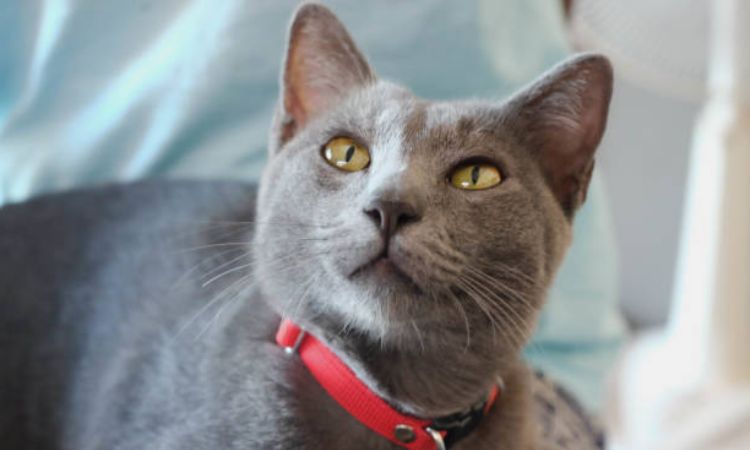
Ongoing Annual Costs
Owning a Korat involves regular expenses to keep them healthy and happy:
- Food: High-quality cat food with real meat or fish as the main ingredient costs around $30–$60 per month.
- Litter: Expect to spend $15–$25 per month on clumping or natural litter.
- Routine Vet Care: Annual checkups, vaccinations, and preventative treatments typically range from $100–$200 per year.
- Dental Care: Korats require regular teeth brushing and occasional professional cleanings.
- Toys and Enrichment: Interactive toys, scratching posts, and puzzle feeders can add $10–$20 per month.
- Optional Insurance: Pet insurance is recommended, especially for genetic conditions, and can cost $15–$50 per month depending on coverage.
On average, monthly ownership costs for a Korat cat range from $80 to $100, not including one-time purchases like scratching posts or carriers. While Korats have a premium upfront cost, their generally healthy nature and affectionate personality make them a rewarding and manageable companion for families willing to invest in proper care.


